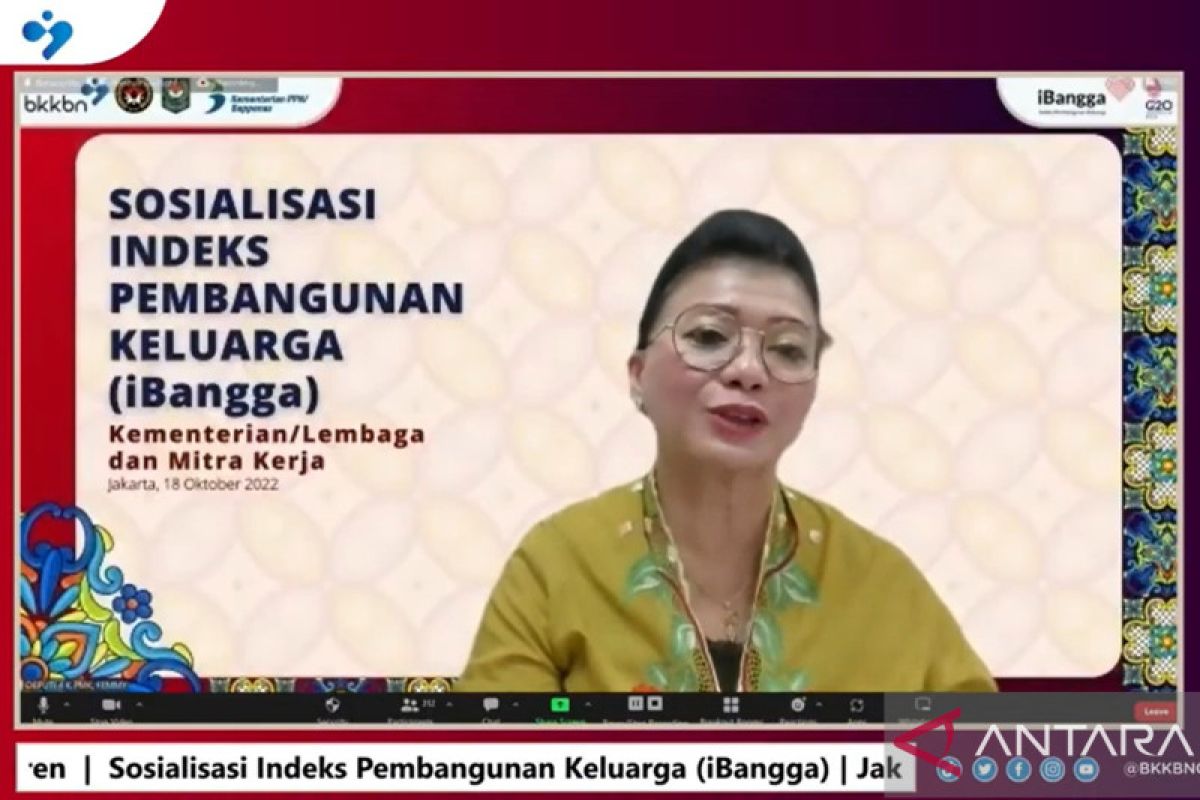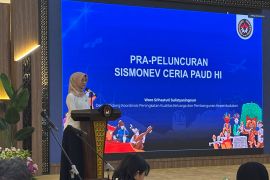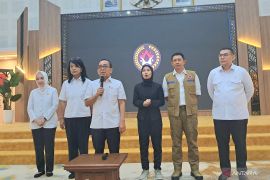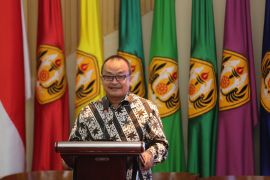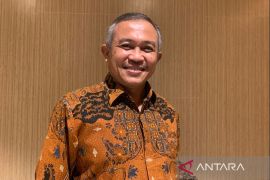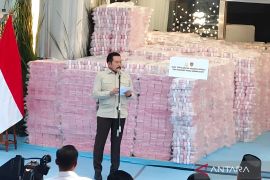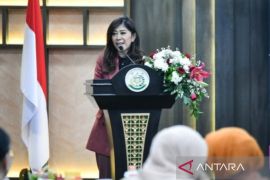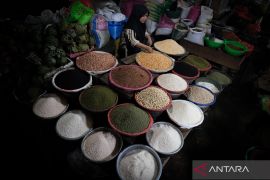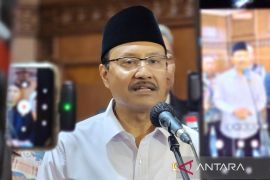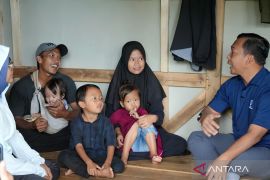"The number of our families is very large and we have to take care of them; we must provide investment and then intervention, so that all Indonesians feel it, by all stakeholders," deputy for coordination for quality improvement of children, women, and youth at the ministry Femmy Eka Kartika Putri said at a "Family Development Index Information” event hosted here on Tuesday.
Based on data from the National Population and Family Planning Agency, the first of the seven types of families is one that comprises a father and a mother, which accounts for 13.3 percent of all families; the second type of family consists of a husband, wife, and children, which accounts for 61.7 percent of families; the third type of family consists of a father and children, which accounts for 2.1 percent of families; and the fourth type of family consists of a mother and her child, which make up 7.5 percent of families, she added.
The fifth type is a family that does not meet types one through four, for example, a nephew who is living with an uncle or a single parent who is living with the child (5.6 percent); the sixth type is a family consisting of just one person (8.7 percent); and the seventh type is a family that does not meet types one through four, such as grandparents with no parents, or grandparents living with grandchildren (5.6 percent).
For improving the quality of families, family development has been carried out based on the 2020–2024 national medium-term development plan, especially through National Priority 4, which is related to mental revolution and fostering the Pancasila ideology, she pointed out.
PN 4 itself contains three priority activities for preparing for family life and gaining life skills. Under the first program, the government aims to improve the ability of families in mentoring adolescents and improving their character.
One effort, which has now been realized, is to offer marriage guidance before marriage. The efforts are expected to help couples be prepared to face problems in the household, thereby reducing the rate of divorces.
The second program is to improve the ability of families in caring for and assisting children in terms of character building, as well as promoting family development and welfare.
The program sees continuity between generations, thus family productivity can continue to survive. In addition, character-building can help children avoid things that could hurt them, such as indulging in free sex, smoking, and drugs.
Meanwhile, the third program is related to strengthening the institutionalization of gender mainstreaming and mainstreaming children's rights for religious and community organizations. That includes the facilitation of collaborative programs to improve the quality of gender-responsive families.
She pointed out that all government programs pay attention to the life cycle in their effort to improve family functions and values. Thus, she urged everyone to create a conducive environment for families to grow and become prosperous and resilient.
"We must not ignore the elderly members and must not ignore the family members who are still at an early age. They are who we hope to be productive and competitive human resources," she added.
Related news: BKKBN seeks active community participation in Quality Family Villages
Related news: Philippines, BKKBN hold Bridging Leadership in eight regions
Related news: Father as pillar to protect family's health, well-being: BKKBN
Translator: Mecca Yumna Ning Prisie
Editor: Azis Kurmala
Copyright © ANTARA 2022
